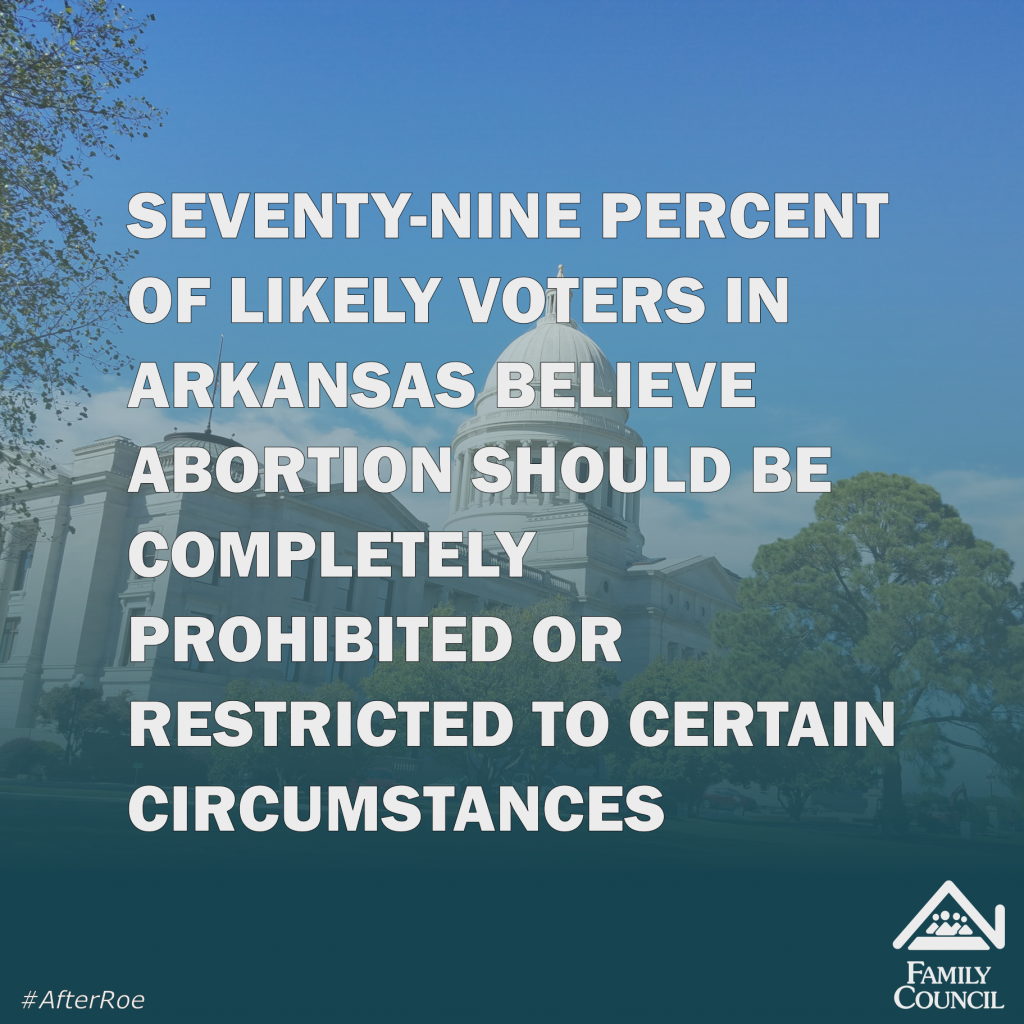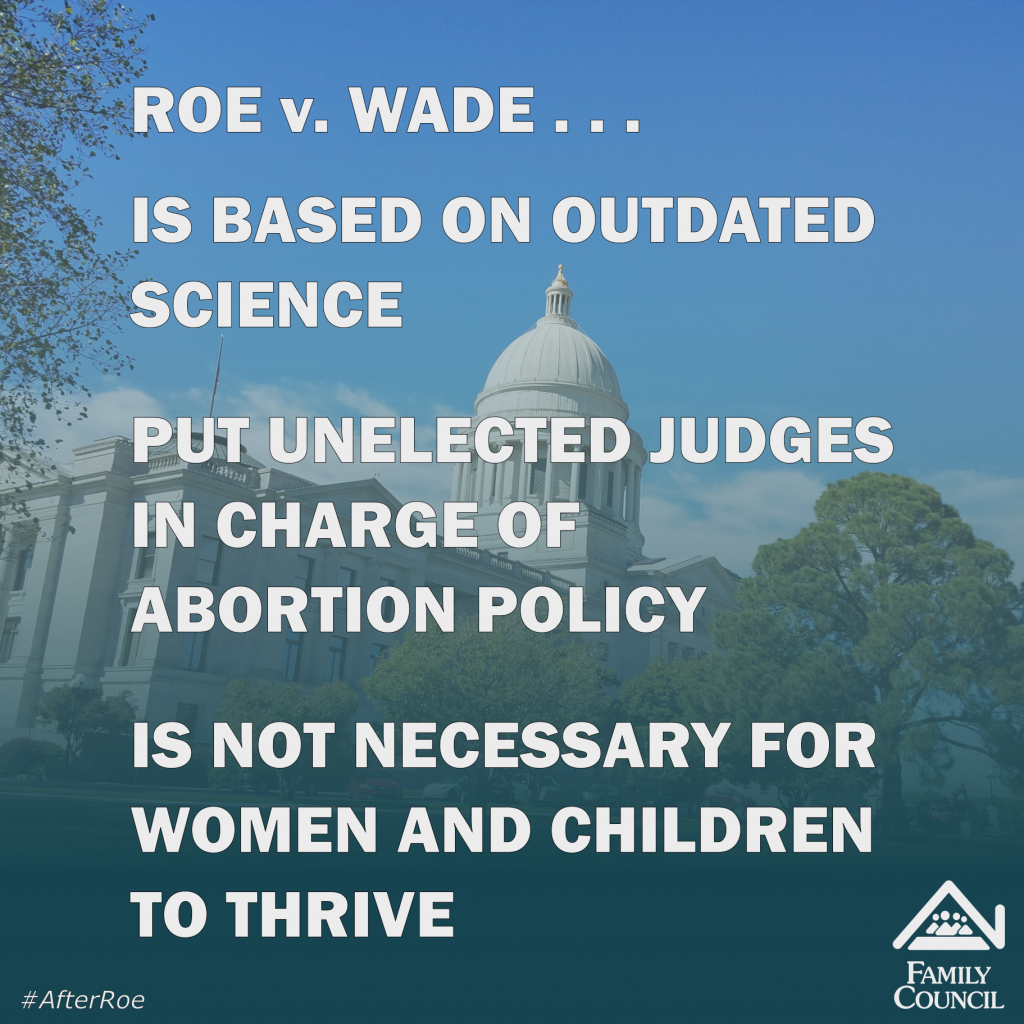
With the recent leak of a draft opinion from the U.S. Supreme Court, many people now expect the court to overturn the 1973 Roe v. Wade abortion decision.
What happens in Arkansas after Roe v. Wade is reversed?
Below are a few points to consider.
The End of Roe Is Not The End of The Pro-Life Movement
Before 1973, states were able to set their own abortion laws. Roe v. Wade struck down those laws nationwide.
Overturning Roe doesn’t mean that abortion automatically will be illegal in America. It means voters, state lawmakers, and congress will once again be able to enact their own abortion laws.
Places like California would be able to keep abortion legal while other states would be free to restrict or prohibit it.
In states like Arkansas, groups who profit financially from abortion may work to make abortion legal.
Overturning Roe v. Wade would be a huge victory, but there may still be work to do.
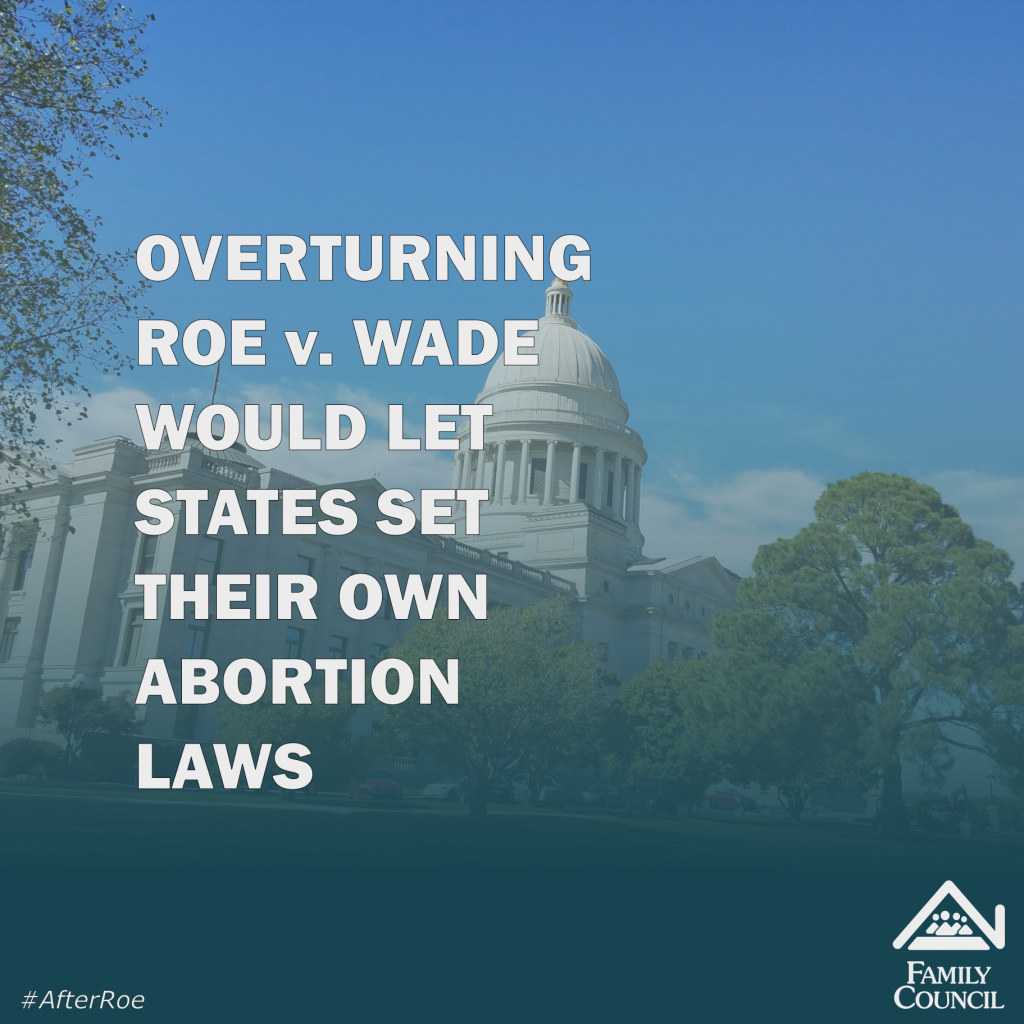
Abortion in Arkansas Generally Will Be Prohibited Unless The Mother’s Life Is At Risk
In 2019 the Arkansas Legislature overwhelmingly passed Act 180, and Governor Hutchinson signed it into law.
Act 180 prohibits abortion in Arkansas if the U.S. Supreme Court overturns Roe v. Wade.
It contains exceptions for abortions performed to save the life of the mother.
The Arkansas Attorney General’s Office has indicated that the State of Arkansas would enforce Act 180 if the U.S. Supreme Court overturned Roe v. Wade.
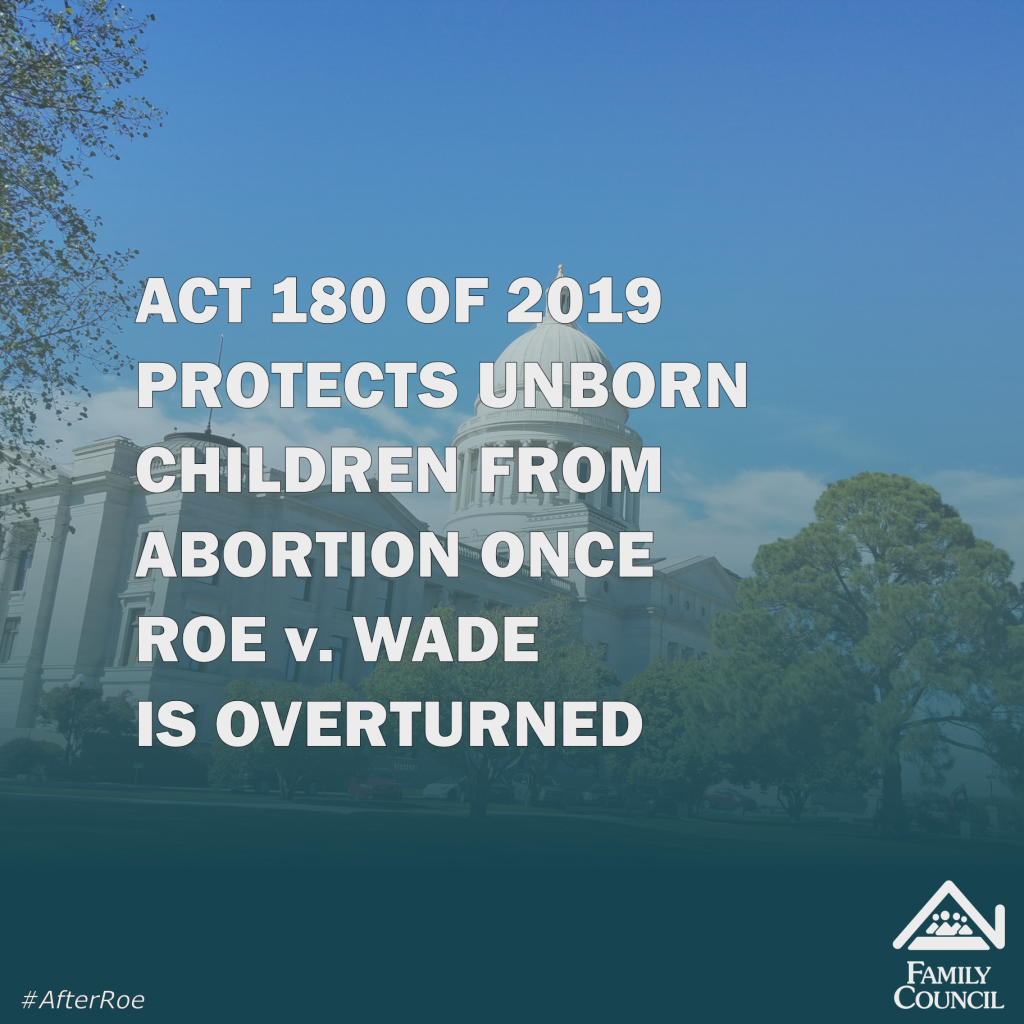
Pro-Lifers Will Need to Step Up to Help Mothers With Unplanned Pregnancies
Even though abortion in Arkansas is near a 45-year low, approximately 3,000 unborn babies are aborted every year.
If Roe v. Wade is overturned and abortion is generally prohibited in Arkansas, pro-lifers will need to step up to help women with unplanned pregnancies.
Arkansas is home to more than 40 pregnancy resource centers.
These organizations provide everything from diapers and baby formula to pregnancy testing, ultrasounds, and information about adoption — often free of charge.
Many states — including Arkansas — have appropriated public funds for organizations like these.
Most abortions in Arkansas are performed on single mothers. Churches, charities, and pro-life organizations will need to help these families.
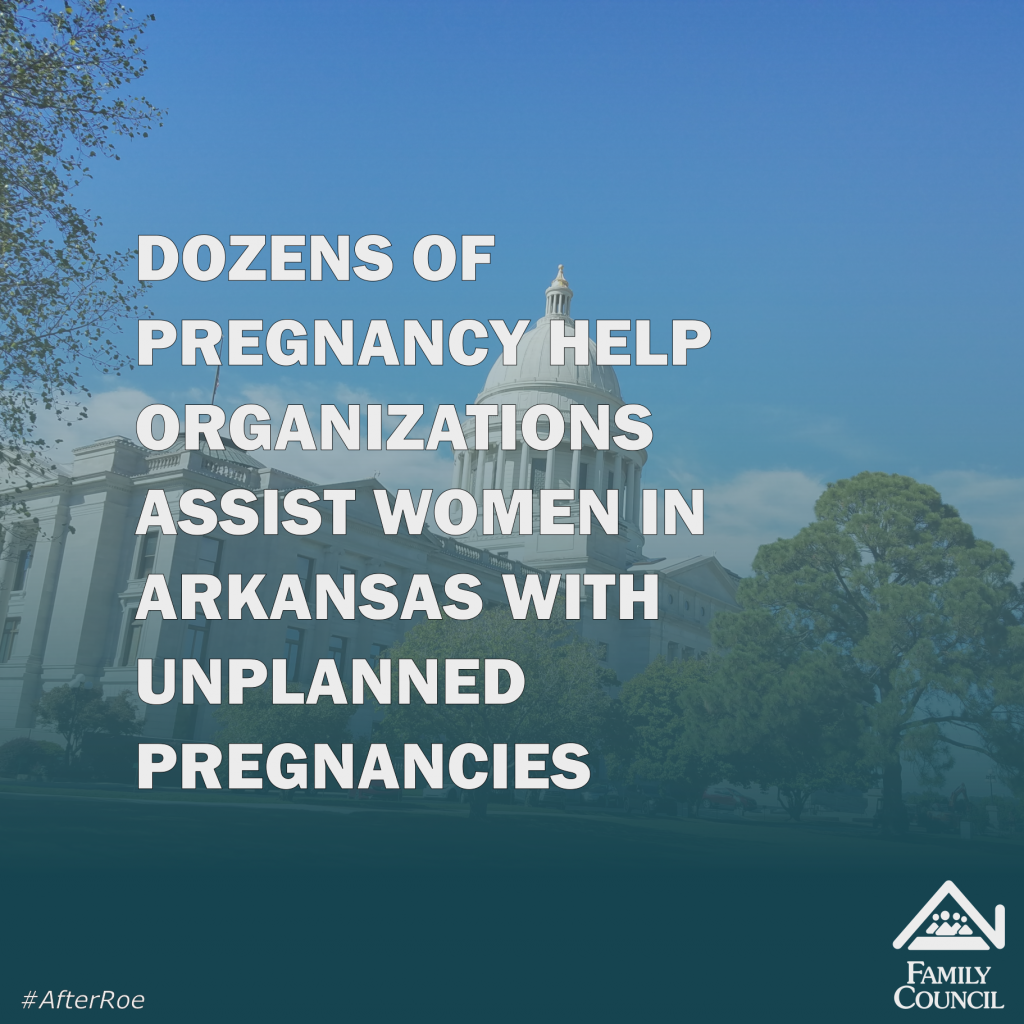
We Will Need to Educate and Equip Arkansans
Public opinion polling from the University of Arkansas shows 79% of likely voters in Arkansas believe abortion should be either completely illegal or restricted to certain circumstances.
Reversing Roe v. Wade means voters and elected officials will decide what kinds of pro-life policies their states will enact.
After Roe, it will be as important as ever that voters know where their elected officials stand on abortion and the sanctity of human life.
